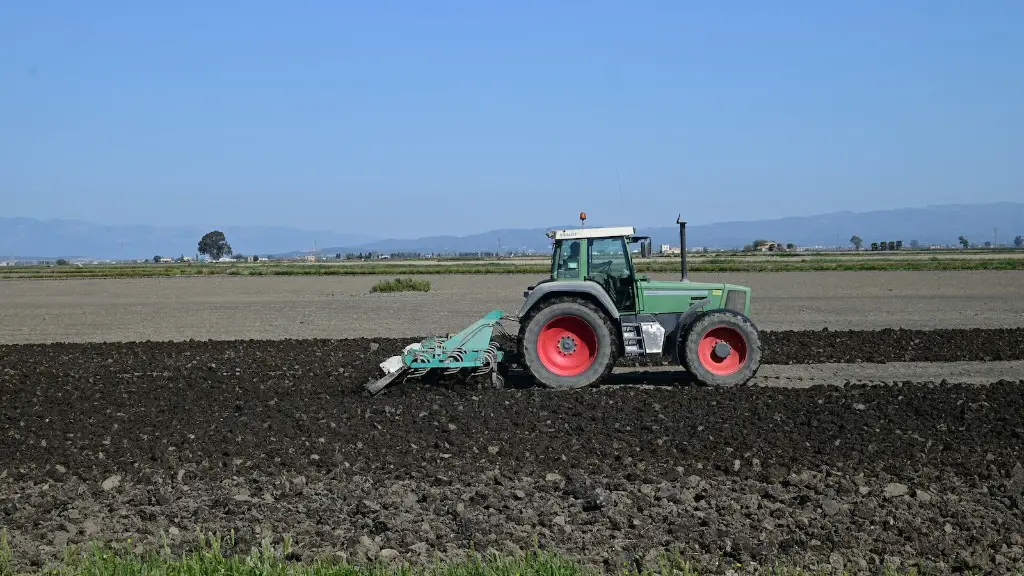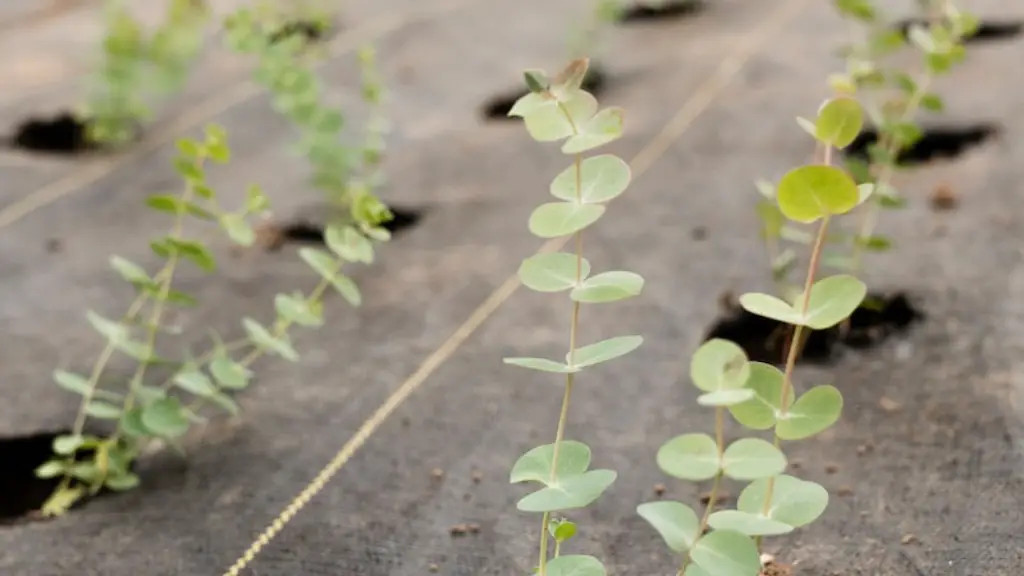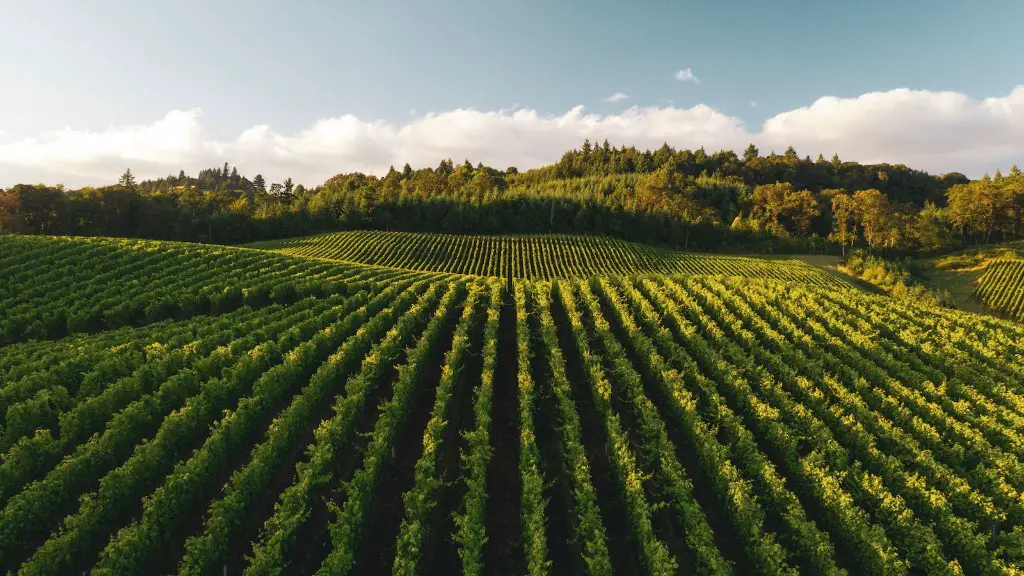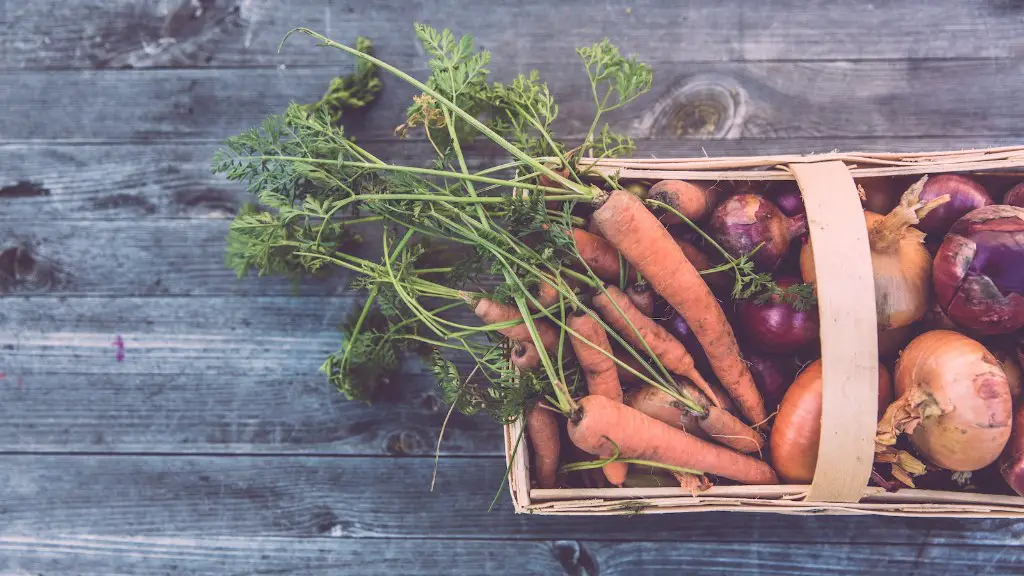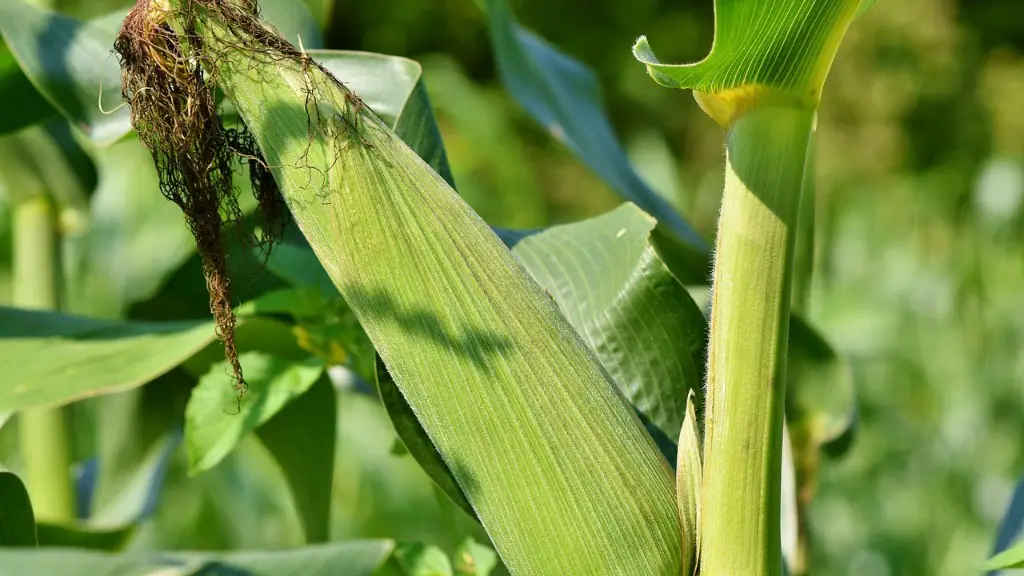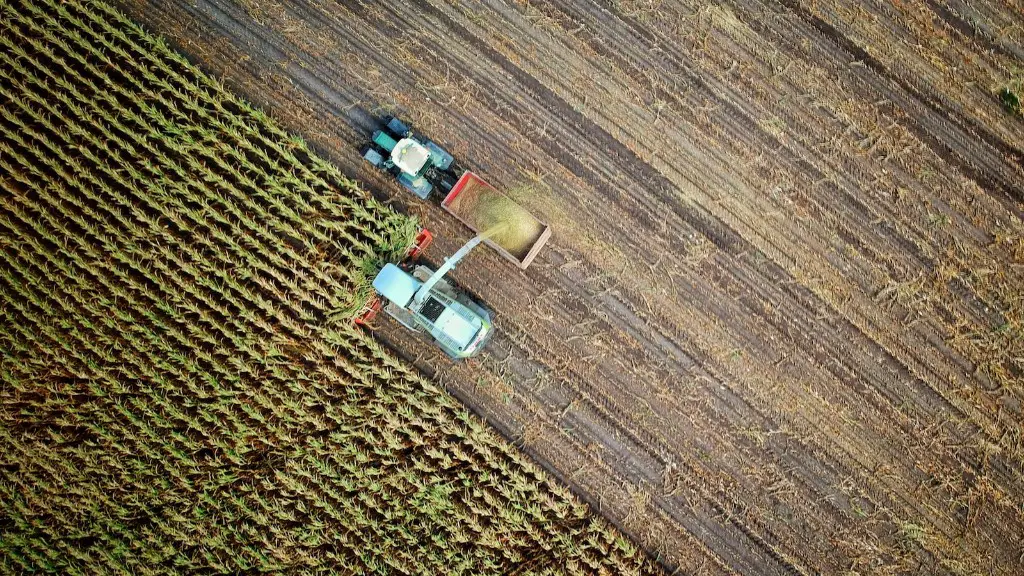If you want to learn about sustainable agriculture, this article is for you. sustainable agriculture is a type of agriculture that is practiced with the intention of sustaining the environment, human population, and animal population. In other words, sustainable agriculture is a way of farming that does not damage or degrade the natural resources upon which agriculture depends.
Sustainable agriculture is a type of agriculture that is practiced with the goal of creating a sustainable system that can be used indefinitely without damaging the environment.
What is meant by sustainable agriculture?
Sustainable agriculture as legally defined in US Code Title 7, Section 3103 means an integrated system of plant and animal production practices having a site-specific application that will over the long term: Satisfy human food and fiber needs; Enhance environmental quality and the natural resource base upon which the agricultural economy depends; Make the most efficient use of nonrenewable resources and on-farm resources and integrate, where appropriate, natural biological cycles and controls; Sustain the economic viability of farm operations; and Enhance the quality of life for farmers and society as a whole.
Sustainable farming is the practice of incorporating initiatives into farming and agricultural work that allow farms to maintain their productivity and usefulness to society indefinitely. Throughout the process of sustainable farming, it is important not to compromise production output.
Sustainable farming practices help to preserve the environment and natural resources, while also ensuring that farmers can continue to make a living. Some sustainable farming practices include using organic fertilizers and pesticides, rotating crops, and using cover crops.
What is an example of sustainable agriculture
Cover crops and perennials are an important part of sustainable agriculture. They protect and build soil health by preventing erosion, replenishing soil nutrients, and keeping weeds in check, reducing the need for fertilizers and herbicides. Cover crops also provide food and habitat for beneficial insects, birds, and other wildlife.
There are a number of sustainable agriculture methods and farming practices that can be used in order to create a more sustainable and environmentally friendly way of producing food. Permaculture is one such method which focuses on creating an ecosystem that is self-sufficient and does not require the use of synthetic fertilizers or pesticides. Biodynamic farming is another sustainable agriculture method which focuses on using natural methods and materials to promote plant growth and health. Hydroponics and aquaponics are two more sustainable methods of food production which use minimal amounts of water and do not require the use of soil. Urban agriculture is another sustainable method of food production which utilizes vacant lots or rooftops in urban areas to grow food. Agroforestry and food forests are two more sustainable methods of food production which involve the planting of trees and shrubs in order to create a microclimate that is ideal for food production.
What are 3 benefits of sustainable agriculture?
There are many ways to increase profitable farm income. One way is to promote environmental stewardship. This can be done by enhancing quality of life for farm families and communities. Another way to increase profitable farm income is to increase production for human food and fiber needs.
Farming operations need to be economically viable to protect the environment and natural resources. This means that farmers need to be able to make a profit from their operations. To do this, they need to be able to produce crops and livestock at a price that is lower than the cost of production. They also need to be able to sell their products at a price that is lower than the cost of production.
Why is sustainable agriculture so important?
Sustainable agriculture is not only important for preserving the earth’s natural resources, but also for benefiting the environment in several other ways. For example, sustainable agriculture helps to maintain soil quality, reduce erosion, and preserve water. In addition, sustainable agriculture can help to mitigate the effects of climate change by reducing greenhouse gas emissions.
There are many ways that farmers can enhance environmental quality and natural resources. One way is to use nonrenewable resources more efficiently. Another way is to take better advantage of on-farm resources. Farmers can also employ natural and biological controls for pests and disease.
What are the four types of sustainable agriculture
Sustainable agriculture is an approach to farming that seeks to protect and restore the natural environment, while also producing healthy food for people to eat.
Elements of sustainable agriculture can include permaculture, agroforestry, mixed farming, multiple cropping, and crop rotation. Each of these approaches has different benefits, but all of them share the goal of making agriculture more sustainable.
Permaculture is a system of agriculture that mimics the patterns and relationships found in natural ecosystems. It can help to increase the overall productivity of a farm while also reducing the need for inputs like water, fertilizer, and energy.
Agroforestry is a type of land management that combines trees and crops in a symbiotic relationship. This can help to improve soil health, increase biodiversity, and provide other benefits.
Mixed farming is an approach that combines different types of crops and animals in a single system. This can help to increase overall productivity and resilience, while also reducing the reliance on any one crop or animal.
Multiple cropping is a technique that involves growing more than one crop in a single growing season. This can help to increase yield, while also reducing the risk of crop failure.
Crop rotation is a system of
Sustainability for food and agriculture requires an holistic approach which considers the economic, social and environmental dimensions. The key principles for a sustainable food system are:
1. Increase productivity, employment and value addition in food systems: This principle emphasises the need to increase productivity and employment opportunities in the food system, while ensuring that value is added throughout the food chain.
2. Protect and enhance natural resources: This principle emphasises the need to conserve and enhance the natural resources on which food production depends.
3. Improve livelihoods and foster inclusive economic growth: This principle emphasises the need to improve livelihoods and create economic opportunities for all, including small-scale producers and marginalised groups.
4. Enhance the resilience of people, communities and ecosystems: This principle emphasises the need to build the resilience of people, communities and ecosystems to shocks and stresses, such as climate change.
5. Adapt governance to new challenges: This principle emphasises the need to adapt governance structures and processes to new challenges, such as the increasing importance of sectoral and multi-sectoral approaches to food security and nutrition.
What is the best sustainable agriculture?
Crop rotation is a method used by farmers to grow a variety of crops in a specific order. The main purpose of crop rotation is to improve the fertility of the soil. Crop rotation also helps to control pests and diseases.
Intercropping is a method of growing two or more crops in the same field. This method can help to improve yields, reduce the spread of diseases, and improve the quality of the crops.
Cover crops are plants that are grown to protect the soil from erosion. Cover crops can also help to replenish nutrients in the soil.
Managing irrigation is important to reduce runoff. Runoff can cause soil erosion. Managing irrigation can also help to conserve water.
Sustainable farming and conventional farming are both systems used to produce food and other goods from the land. They both involve soil management, crop management, water management, disease/pest management and waste management. However, sustainable farming practices are designed to minimize the negative impact of farming on the environment, while still maintaining or improving crop yields. This is done through a variety of practices, such as using cover crops to improve soil health, planting trees to provide windbreaks and minimize soil erosion, and using reduced-tillage methods to minimize soil disturbance.
How can we improve sustainable agriculture
There is no one-size-fits-all approach to sustainable agriculture, as the perfect solution will vary depending on local conditions and farmers’ individual needs and preferences. However, there are some general principles and practices that are universally applicable and can help make any farming operation more sustainable.
Some of the most promising practices in sustainable agriculture include organic farming, agroforestry, natural farming, the system of rice intensification, precision farming, conservation agriculture, crop rotation and intercropping, cover crops and mulching, and water harvesting and management. By adopting even a few of these practices, farmers can significantly reduce their impact on the environment and help build a more sustainable future for agriculture.
The growing scarcity and fast degradation of natural resources are the overarching challenges being faced today. The demand for food, feed, fibre and goods and services from agriculture (including crops, livestock, forestry, fisheries and aquaculture) is increasing rapidly, but the resources available are dwindling. This is a major problem that needs to be addressed urgently.
What are the issues with sustainable agriculture?
One of the main challenges of sustainable farming is feeding the world’s growing population. This is especially difficult as usable land decreases and water becomes scarcer. Additionally, sustainable farming practices are often more expensive than traditional farming methods, making it difficult to compete in the marketplace. Finally, climate change poses a significant threat to sustainable farmers, as extreme weather conditions can devastate crops.
Sustainable agriculture is an approach to food production that emphasizes the use of environmentally sound practices. Sustainable agriculture also promotes economic stability for farms and helps farmers to better their quality of life. Agriculture continues to be the biggest employer in the world, with 40% of the world’s population working in it.
Which country has the most sustainable agriculture
These countries have all made significant strides in sustainable agriculture, whether it’s through initiatives to promote organic farming, support for small farmers, or investing in research and development for more environmentally friendly farming practices. As a result, they are able to produce food while also protecting natural resources and safeguarding the environment. This not only benefits those countries, but also sets a strong example for other nations to follow.
Mark Jones is an agricultural economist and the Director of Agricultural Development at the Bill & Melinda Gates Foundation. He oversees the Foundation’s work on agricultural development, which includes investments in research and development of new crop varieties, as well as programs to improve farmers’ access to markets and to strengthen agricultural productivity in sub-Saharan Africa and South Asia.
Conclusion
There is no single definition of sustainable agriculture, but sustainable agriculture generally refers to farming practices that are environmentally friendly and that do not deplete the resources on which the farming operation depends. Sustainable agriculture can also refer to the production of food in a way that is healthy for consumers and does not require the use of harmful chemicals or other inputs.
Sustainable agriculture is the type of farming that can be continued indefinitely without damaging or depleting the natural resources it relies on. It is a holistic system that incorporates all aspects of the farm, including the animals, plants, people, and the environment.
